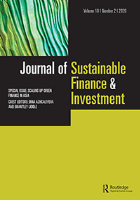
Journal of Sustainable Finance & Investment
Scope & Guideline
Shaping the Future of Finance with Sustainability in Mind
Introduction
Aims and Scopes
- Sustainable Investment Strategies:
Explores methodologies and frameworks for integrating sustainability into investment decisions, including ESG (Environmental, Social, and Governance) criteria and impact investing. - Corporate Governance and Sustainability:
Examines the role of corporate governance structures in promoting sustainable practices and enhancing corporate social responsibility (CSR) across various sectors. - Risk Management in Sustainable Finance:
Investigates the implications of climate-related risks and sustainability factors on financial performance, including the assessment and management of risks in financial portfolios. - Financial Innovations for Sustainability:
Focuses on the development and application of innovative financial instruments, such as green bonds and sustainable finance frameworks, to facilitate investment in sustainable projects. - Sector-Specific Analyses:
Provides insights into sustainability practices in specific industries, such as banking, agriculture, and energy, analyzing the unique challenges and opportunities within these sectors. - Global and Regional Perspectives:
Addresses sustainable finance from both global and regional viewpoints, promoting comparative research that highlights different practices and regulatory environments.
Trending and Emerging
- Climate Finance and Risk Assessment:
An increasing number of studies focus on the financial implications of climate change, including risk assessments and the integration of climate-related factors into financial decision-making. - Digital Finance and Sustainability:
Research on the role of digital finance, including blockchain and fintech solutions, is emerging as a significant area, highlighting how technology can enhance sustainable finance practices. - Impact of ESG on Financial Performance:
There is a growing interest in empirical studies that investigate the relationship between ESG performance and financial outcomes, reflecting a shift towards evidence-based practices in sustainable investing. - Gender Diversity and Sustainability:
The intersection of gender diversity in corporate governance and its impact on sustainability practices is an emerging theme, with researchers examining how diversity influences decision-making in sustainable finance. - Social Impact and Financial Inclusion:
Increasing attention is being given to the social dimensions of sustainable finance, particularly how financial instruments can promote inclusion and address social challenges in underserved communities. - Machine Learning and AI in Sustainable Investing:
The application of machine learning and artificial intelligence in analyzing and predicting sustainable investment opportunities is gaining traction, showcasing the innovative approaches being adopted in the field.
Declining or Waning
- Traditional Financial Performance Metrics:
There is a noticeable decline in papers focusing solely on traditional financial performance metrics without considering their sustainability implications, as researchers increasingly recognize the importance of integrating ESG factors. - Non-Sustainable Investment Practices:
Research examining non-sustainable investment practices is becoming less frequent, as the field shifts towards promoting sustainable alternatives and measuring their impact. - General Corporate Finance without Sustainability Context:
The journal has moved away from general studies in corporate finance that do not incorporate sustainability considerations, as the relevance of sustainability in financial decision-making becomes more pronounced.
Similar Journals
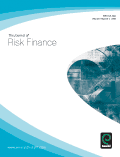
Journal of Risk Finance
Advancing insights in risk management and finance.The Journal of Risk Finance, published by Emerald Group Publishing Ltd, is a premier academic journal dedicated to advancing the understanding of risk management and finance practices since its inception in 1999. With a strong foothold within the Q2 rankings in both Accounting and Finance categories, it proudly holds a significant place in the scholarly landscape, ranking #54 out of 317 in the Scopus Economics and Finance category, placing it in the 83rd percentile. The journal aims to facilitate the exchange of innovative research and practical insights, catering to an audience of researchers, professionals, and students eager to explore contemporary issues in risk finance. While not an open access journal, it provides numerous access options, ensuring that essential findings reach a broad readership. Set in the United Kingdom and covering publications up to 2024, the Journal of Risk Finance continues to be an indispensable resource for those committed to this critical field.
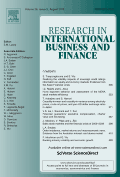
Research in International Business and Finance
Navigating the complexities of global financial systems.Research in International Business and Finance is a premier academic journal published by ELSEVIER, dedicated to advancing the field of international business and finance through high-quality research dissemination. With its ISSN 0275-5319 and E-ISSN 1878-3384, this journal stands out in the international research community, boasting an impressive Q1 ranking in both the Business, Management and Accounting and Finance categories for 2023. The journal aims to stimulate insightful discussions and provide a platform for innovative theories and practices from global perspectives, emphasizing empirical research and critical analysis. As it converges towards 2025, it continues to hold a prominent position in its fields, currently ranking #8 out of 189 in Business and #18 out of 317 in Finance according to Scopus. Although it does not offer open access options, the journal’s rigorous peer-review process ensures that only the most impactful research is published, making it an essential resource for researchers, professionals, and students striving for excellence in international business and finance.
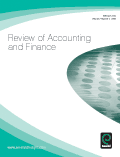
Review of Accounting and Finance
Unveiling Insights in Global Financial SystemsReview of Accounting and Finance, published by EMERALD GROUP PUBLISHING LTD, is a prestigious academic journal with a longstanding commitment to advancing scholarship in the fields of accounting, finance, and economics. With an ISSN of 1475-7702 and E-ISSN of 1758-7700, this journal has established itself as a key resource for researchers, professionals, and students seeking robust empirical and theoretical insights. It enjoys a strong reputation, reflected in its 2023 Scopus rankings, where it is positioned in the top quartile for Economics and Finance, and holds a Q2 category in Accounting. The journal covers a wide range of topics, aiming to foster discussion and disseminate knowledge that bridges the gap between theory and practice. Although it does not offer open access, its comprehensive scope is invaluable for those dedicated to understanding the complexities of financial systems and accounting practices from a global perspective. Published continuously from 2002 to 2024, the Review of Accounting and Finance is an essential outlet for innovative research that drives the discipline forward.

JOURNAL OF FINANCIAL ECONOMICS
Advancing financial insights for a sustainable future.Welcome to the JOURNAL OF FINANCIAL ECONOMICS, a premier publication in the realms of finance, economics, and accounting, published by Elsevier Science SA in the Netherlands. With its impactful contributions since 1974, this esteemed journal has earned an impressive impact factor and consistently ranks in the Q1 category across various fields, including Accounting, Economics and Econometrics, Finance, and Strategy and Management. Researchers can access cutting-edge studies that delve into both theoretical frameworks and empirical analyses, crucial for advancing financial literacy and economic policies globally. With remarkable Scopus rankings, notably placing #2 in Accounting and #6 in Finance, the journal serves not only as a reliable resource for academics but also as a vital tool for professionals seeking to stay abreast of the latest financial trends and insights. Engage with the latest research and contribute to the dialogue shaping the future of financial economics!
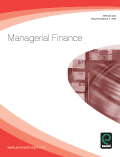
MANAGERIAL FINANCE
Shaping the Future of Managerial Finance.MANAGERIAL FINANCE is a prestigious academic journal published by Emerald Group Publishing Ltd, focused on the areas of finance, management, and strategy. With an ISSN of 0307-4358 and an E-ISSN of 1758-7743, this journal has carved a niche for itself within the business and financial sectors, achieving a commendable Q2 category ranking across multiple domains, including Business, Management and Accounting, Finance, and Strategy and Management, as of 2023. The journal aims to provide a platform for insightful research and critical analysis while fostering an understanding of contemporary financial practices and theories. With its wide-ranging scope, it serves as a vital resource for researchers, professionals, and students alike, looking to stay abreast of the latest trends and challenges in managerial finance. The editorial board is committed to maintaining academic rigor, ensuring that articles published are of the highest quality and relevance to the field. By bridging the gap between theory and practice, MANAGERIAL FINANCE is an essential reference for anyone involved in financial decision-making and strategic management.
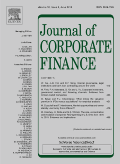
JOURNAL OF CORPORATE FINANCE
Catalyzing Research for Informed Financial Decision-MakingJOURNAL OF CORPORATE FINANCE, published by Elsevier, is a premier academic journal that represents the forefront of research in the fields of corporate finance, economics, and management strategies. With an impressive Q1 ranking across multiple categories and a 95th percentile standing in Scopus rankings, this journal is pivotal for advancing knowledge and fostering discourse among scholars, practitioners, and students globally. The Journal has been in continuous publication since 1994 and welcomes submissions that contribute to the understanding of corporate finance and related disciplines. Although it operates under a traditional access model, the Journal offers a rich repository of research outcomes pivotal for informed decision-making in corporate environments. Researchers and professionals looking to enhance their understanding of contemporary finance phenomena will find the JOURNAL OF CORPORATE FINANCE an invaluable resource.

Journal of Economics Finance and Administrative Science
Empowering knowledge exchange across disciplines.Journal of Economics Finance and Administrative Science, published by Emerald Group Publishing Ltd, is a premier open-access journal that has been at the forefront of advancing knowledge since its inception in 2012. With an ISSN of 2077-1886 and E-ISSN of 2218-0648, the journal caters to the disciplines of economics, finance, and administrative sciences within an international context, specifically observing trends from Peru and beyond. This highly regarded journal holds a Q1 ranking in Economics, Econometrics and Finance for 2023, landing it in the top percentile among its peers, with an impressive Scopus rank of #33 out of 288 in general economics. Since transitioning to open access in 2017, the journal has democratized access to cutting-edge research, making it indispensable for researchers, professionals, and students alike. By publishing rigorous empirical studies, comprehensive reviews, and innovative theoretical contributions, the Journal of Economics Finance and Administrative Science aims to facilitate knowledge exchange and foster collaboration within the global academic community.
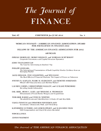
JOURNAL OF FINANCE
Your gateway to premier financial scholarship.JOURNAL OF FINANCE, published by Wiley, stands as a premier academic journal in the fields of finance, economics, and accounting. With a history dating back to 1946, the journal has consistently delivered impactful research that shapes financial theory and practice, boasting an impressive impact factor reflective of its high citation rate. Its Quartile 1 ranking in Accounting, Economics and Econometrics, and Finance illustrates its leading position within these disciplines. Although not an open access publication, the journal continues to be indispensable for researchers, professionals, and students seeking to advance their understanding and knowledge through rigorous empirical analysis and comprehensive reviews. With an esteemed global readership, the JOURNAL OF FINANCE remains committed to fostering the dissemination of innovative financial research well into 2024 and beyond.
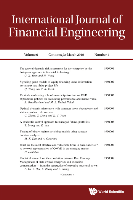
International Journal of Financial Engineering
Empowering research that transforms financial landscapes.The International Journal of Financial Engineering, published by WORLD SCIENTIFIC PUBL CO PTE LTD, is a premier academic journal dedicated to advancing the field of financial engineering. With a ISSN of 2424-7863 and an E-ISSN of 2424-7944, this journal offers a platform for groundbreaking research that intersects finance, mathematics, and computational techniques, promoting innovative solutions to complex financial problems. As a vital resource for researchers, practitioners, and students alike, the journal aims to disseminate cutting-edge methodologies and empirical studies that drive the financial industry forward. While the journal operates under a subscription model, its rigorous peer-review process ensures that only high-quality research is published, maintaining its significance within the academic community. With an ever-growing focus on quantitative finance and derivative pricing, the International Journal of Financial Engineering is essential for those seeking to enhance their understanding of financial markets and engineering.
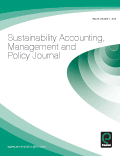
Sustainability Accounting Management and Policy Journal
Shaping Tomorrow’s Policies with Sustainable Accounting InsightsSustainability Accounting Management and Policy Journal, published by Emerald Group Publishing Ltd, is a premier academic journal dedicated to advancing the fields of sustainability, accounting, and management. With an ISSN of 2040-8021 and an E-ISSN of 2040-803X, the journal supports a rigorous exploration of sustainable practices in accounting and management, striving to provide insights that inform policy and enhance environmental responsibility. Recognized for its impact, the journal holds a Q1 ranking in the categories of Accounting, and Business, Management and Accounting (miscellaneous), alongside a solid Q2 in Renewable Energy, Sustainability and the Environment, showcasing its relevance in contemporary academic discourse. Featuring a Scopus rank of 7th in Accounting (96th Percentile) and 21st in General Business, Management and Accounting (90th Percentile), it offers a crucial platform for researchers, practitioners, and students alike. With a commitment to high-quality, impactful research, the journal serves as a vital resource for those looking to shape sustainable practices in business and policy-making worldwide.